-
UPC Litigation Forum (19th): Monday, 19 Jan, 20268:30am - 9:30amRegistration9:30am - 9:40amChair’s Introduction to the UPC Litigation ForumMorning Session
Claim Construction at the UPC: A Review of EPO, National and UPC Case Law
Claim Construction at the UPC: A Review of EPO, National and UPC Case Law This session examines the UPC’s evolving approach to claim interpretation, highlighting key decisions that clarify how claims are construed in comparison with EPO and national practices. It will explore recent landmark rulings and ongoing developments shaping patent litigation strategies.
• Review the UPC Court of Appeal decision NanoString Technologies v. 10xGenomics, which clarified the standard for interpreting patent claims based on Article 69 EPC and its Protocol, affecting both infringement and validity assessments.
• Examine the ongoing question of whether the file wrapper should be considered in claim construction, which awaits a final decision by the UPC Court of Appeal.
• Analyse the decision of G1/24 and its impact upon claims raised at national courts, the EPO and the UPC.Speaker(s):
Sabine Agé
PartnerHoyng Rokh Monegier
Agathe Michel-De-Cazotte
PartnerCarpmaels & Ransford
Manuel Neetz
IP CounselSiemens HealthineersTime:09:40am - 10:25amAgenda Track No.:Track 3Session Type:PanelForce Inline Description:0Morning SessionThe Development of the Doctrine of Equivalents Case Law: Comparing the UPC with National Jurisdictions
This session examines how the UPC’s evolving case law on equivalence compares with national practices in jurisdictions such as the UK, USA, Germany, and Brazil. With recent UPC decisions applying the four-prong test to life sciences disputes, panellists will assess whether the doctrine is delivering legal certainty while ensuring fair protection for patentees.
• Analyse how recent UPC rulings apply the doctrine of equivalents and compare with approaches in the UK, USA, Germany, and Brazil.
• Are the four key UPC questions workable in practice, especially in the life sciences context?
• Evaluate the balance between legal certainty for third parties and fair protection for patent holders under the UPC system.Speaker(s):
Viviane Kunisawa
PartnerDaniel Law
Liz Cohen
PartnerBristows
Julia Schönbohm
PartnerLinklaters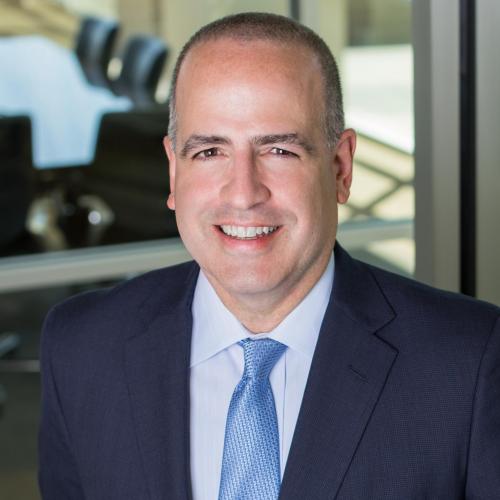
Jon Singer
PrincipalFish & RichardsonJon is a principal in the firm’s San Diego office and heads the life sciences litigation practice. He appears regularly as lead counsel in his matters and handles all aspects of litigation, including leading jury and bench trials, trying cases to administrative and arbitration panels and conducting briefing and arguments before the U.S. Courts of Appeals and the PTAB. Jon is annually named one of the nation’s finest life sciences trial attorneys and is an expert in proceedings under the Hatch-Waxman Act. His clients consistently praise his innovative and ground-breaking work and over the past two decades, he has successfully handled dozens of cases covering all aspects of the life sciences.
Time:10:25am - 11:10amAgenda Track No.:Track 3Session Type:PanelForce Inline Description:011:10am - 11:40amNetworking BreakMorning SessionUPC Judges Panel Session: Understanding the Case Law and Operations Behind the Decision Makers at the Court
Join an exclusive panel featuring esteemed judges from the UPC, whose decisions are shaping the future of patent litigation across Europe. This prestigious session offers a rar opportunity to gain invaluable insights into the judicial mindset and decision-making processes at one of the most important new patent courts globally. Don’t miss this chance to engage with the very authorities defining the UPC’s jurisprudence and influencing litigation strategies across industries.
Speaker(s):
Emmanuel Gougé
Honourable JudgeUPC Court of Appeal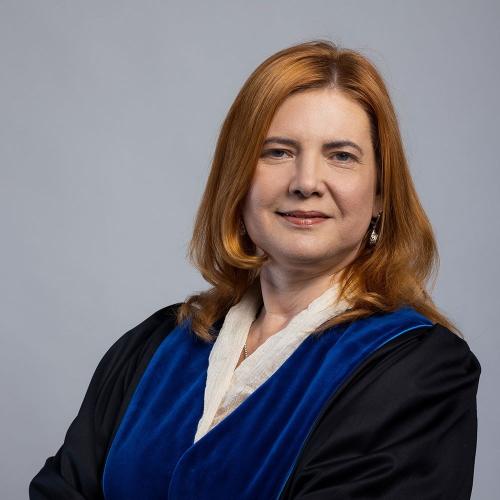
Kai Harmänd
Honourable JudgeUPC Court of First Instance
Peter Blok
Honourable JudgeUPC Court of Appeal
Antje Brambrink
PartnerFinneganDr. Antje Brambrink is qualified and admitted as an attorney at law in Germany. She advises and represents clients in complex patent disputes on all IP-related matters, often at the interface of antitrust and regulatory laws. Her expertise covers various fields of technology with a focus on pharmaceuticals, biotechnology, med-tech, as well as renewable energies and high-tech. Our clients appreciate Antje’s deep understanding of the life sciences sector based on her dual qualification as a licensed dentist.
As a patent litigator, Antje represents clients in infringement, preliminary injunction and inspection proceedings before German district and appeal courts as well as in nullity and compulsory license proceedings at the German Federal Patent Court and the Federal Supreme Court.
In addition to her work as a litigator, Antje advises clients strategically on all issues relating to intellectual property rights (patents, utility models, supplementary protection certificates), such as contracts for the licensing and transfer of rights also in connection with international transactions or the newly established Unified Patent Court (UPC). She has extensive experience in the European coordination of multinational patent disputes.
Prior to joining Finnegan, Antje practiced patent litigation for several years in the patent litigation teams of two international law firms seated in Germany. Antje’s medical and scientific background is of great benefit in advising clients from the life sciences sector. Renowned pharmaceutical, biotechnology and medical devices companies regularly seek her advice. She also advises in the field of renewable energies and in the enforcement of standard-essential patents.

Simon Walker
Technically Qualified JudgeUPCTime:11:40am - 12:30pmAgenda Track No.:Track 3Session Type:General Session (Presentation)Force Inline Description:0Afternoon SessionUsing Parallel UPC and EPO Proceedings as a Strategic Tool
As the UPC enters its third year, litigants are increasingly testing the interplay between UPC actions and EPO oppositions. While UPC decisions are not binding on the EPO, both institutions stress the need for legal certainty and efficiency—yet divergent outcomes are still possible. This session examines how parties are using parallel tracks not only to defend or attack patents but also to shape settlement dynamics, licensing leverage, and litigation timing.
- Understand when the UPC is likely to stay proceedings in light of parallel EPO oppositions, including guidance from Astellas v. Healios, Toyota Motor v. Neo Wireless, Carrier v. Bitzer and Edwards v. Meril.
- Analyse the strategic implications of conflicting outcomes where the UPC and EPO maintain different amended forms of a patent.
- Explore tactical advantages for opponents in filing both EPO oppositions and UPC revocation actions, including accelerated proceedings and increased pressure on patentees.
- Evaluate how timing choices—whether simultaneous filings or staggered actions—can influence settlement leverage and long-term portfolio strategy.
Speaker(s):
Filip De Corte
Head of IPSyngentaFilip De Corte is Head of Intellectual Property at Syngenta Crop Protection, leading patent attorneys based in Switzerland, the UK, the US, The Netherlands and China. Filip joined Syngenta on October 1, 2013. Until then, he held the position of Chief IP Counsel Europe at Cargill (2008 – 2013). Before joining Cargill in 2008, he worked in the Johnson & Johnson patent department, working in Beerse with Janssen Pharmaceutica (1991-2004), New Brunswick (2004-2007), and Brussels (2007-2008). Filip has a Ph.D. in organic chemistry, he is a qualified European Patent Attorney and passed the US patent bar exam. He has the qualification of European Patent Litigation from the University of Strasbourg. He also has an MBA of the Vlerick School of Management. Filip taught patent law in Antwerp under the auspices of CEIPI (Université de Strasbourg) as well as at the University of Leuven in the IPR management course and is a lecturer in the CEIPI patent litigation course.

Frits Gerritzen
PartnerA&O Shearman
Jiri Slavik
Vice President- Intellectual PropertyAdalvo
Suzanne Wassmann
Lead Counsel- Patent LitigationSolvayTime:12:30pm - 13:15pmAgenda Track No.:Track 3Session Type:General Session (Presentation)Force Inline Description:013:15pm - 14:15pmNetworking LunchAfternoon SessionFireside Chat: Caught between Scylla and Charybdis – what the lack of an “Amtsermittlungsgrundsatz” means for parties at the UPC
The UPC’s Milan Division has drawn new lines on procedural efficiency- finding both excessive invalidity attacks and late-filed arguments unacceptable. This 15 minute update examines the bioMérieux v Labrador decision and its implications for how defendants and plaintiffs must now calibrate their litigation strategy before the UPC.
Speaker(s):
Aloys Hüttermann
Patent AttorneyMichalski HüttermannTime:14:15pm-14:30pmAgenda Track No.:Track 3Session Type:General Session (Presentation)Force Inline Description:0Afternoon SessionInjunction Practice at the UPC: What Are We Learning So Far?
With the UPC issuing an increasing number of rulings, its developing case law on injunctions is critical for shaping enforcement strategies. For IP counsel and litigators, understanding how and when the UPC is willing to grant or deny injunctions - whether preliminary or permanent - is essential for advising clients, managing litigation risk, and crafting effective pan-European strategies.
• Review Grundfos v. Canned Motor Pump (Düsseldorf LD), where the court issued a permanent injunction despite ongoing licensing talks and clarified that lack of inventive step must be explicitly argued - not merely referenced via prior art.
• Analyse Boehringer v. Zentiva (Lisbon LD), in which the court denied provisional measures due to lack of proof of imminent infringement, offering key insights into evidentiary thresholds at the UPC.
• Understand the Milan LD’s approach to litigation costs in Ericsson v. Digital River and Oerlikon v. Bhagat, highlighting how procedural context and case complexity affect fee shifting.
• Discuss how this growing body of UPC injunction case law is influencing strategic decision-making across industries and jurisdictions.Speaker(s):
Ewan Nettleton
Principal IP Counsel- Oncology LitigationNovartis
Matthew Naylor
PartnerMewburn Ellis
Tobias Wuttke
PartnerBardehle Pagenberg
Charles Tuffreau
PartnerA&O Shearman
Eelco Bergsma
Director- AssertionEricsson
Sufiyah Sulaiman
Senior Patent Manager Patent LitigationSTADASufiyah Sulaiman is an attorney-at-law with a master’s degree in science. As an in-house patent litigation counsel of generic pharma giants, she has been managing their patent litigation and product launch-at-risk globally. At the moment, she is a senior manager (patent litigation) at STADA (Arzneimittel) AG, before that she was the Global IP litigation counsel for Sandoz (International GmbH) and, IP and regulatory litigation counsel for Mylan (now Viatris).
Time:14:30pm - 15:40pmAgenda Track No.:Track 3Session Type:General Session (Presentation)Force Inline Description:0Afternoon SessionUPC Case Law Review: A Discussion of the Trends and Changes Taking Place at Europe’s Newest Patent Court
As the UPC continues to take shape through early rulings, procedural clarifications, and appeals, legal teams across Europe are watching closely to understand how this new venue is redefining enforcement strategy. This session offers a practical review of the key decisions to date, considers procedural and jurisdictional trends, and examines the strategic calculus of litigating in the UPC versus national courts.
• Review recent UPC case law and appeals to understand emerging judicial approaches and procedural norms:
- Edwards Lifesciences v Meril (2025)
- Mul-T-Lock v IMC Créations (2025)
- Abbott Diabetes Care v Sibio Technology (2025)
• Examine strategic decision-making: when and why companies are choosing the UPC over national courts. Compare early UPC developments to UK patent litigation to identify points of convergence and divergence.Speaker(s):
Florian Muller
FounderIP Fray
Tjibbe Douma
PartnerBird & Bird
Raquel Frisardi
Associate Corporate CounselNovo NordiskTime:15:40pm - 16:25pmAgenda Track No.:Track 3Session Type:PanelForce Inline Description:016:15pm-16:45pmNetworking BreakAfternoon SessionUPC Strategy Session: Settlements, Prosecution and Cost Savings
The UPC is not just a litigation forum—it is also proving to be a strategic lever for in house counsel seeking faster resolutions, stronger negotiating positions, and cost effective enforcement. This session will examine how companies are recalibrating their patent prosecution and litigation strategies to take advantage of the UPC’s tight timelines, wide territorial scope, and growing body of case law on injunctions and costs.
• Explore how the mere filing of UPC cases—such as Ocado’s triple-action move against Autostore—can accelerate settlements in long-running, multi jurisdictional disputes.
• Understand how the UPC’s efficiency and Europe-wide reach heighten pressure on implementers, making the threat of an injunction a powerful driver of licensing outcomes.
• Examine how the UPC’s approach to proportionate injunctions and litigation cost allocation (e.g., Milan LD rulings) are influencing early settlement calculus and portfolio management.
• Discuss how in-house teams are adapting prosecution strategies—such as timing of unitary effect requests—to align with their risk tolerance and enforcement goals.
Speaker(s):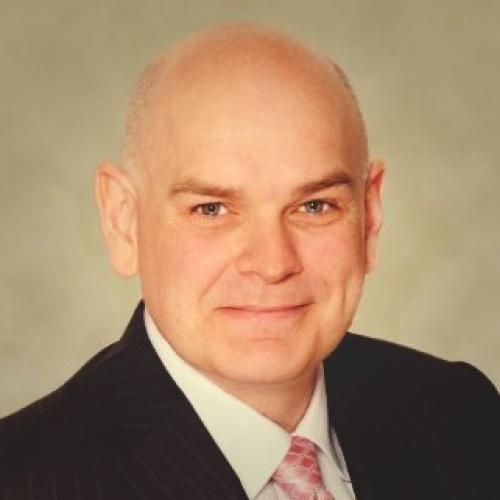
Sean Alexander
Head of IP StrategyUmicoreSean Alexander is a qualified European Patent Attorney as well as a Canadian and U.S. Patent Agent. He has worked in the IP field for many years and is currently the Head of IP Strategy (H&N) for Chr. Hansen in Denmark. Prior to joining Chr. Hansen, Sean headed the IP team at Elanco Inc. based in the Netherlands and was a Partner with Gowling WLG in Canada. Sean has been recognized as one of the world's leading IP strategists by IAM Magazine and is regularly praised for his pragmatic and commercially aware approach to IP.

Eric Whitaker
Chief Legal Officer10x Genomics
Sebastien Versaevel
PartnerTaylor Wessing
Farnaz Massoumian
Senior Patent AttorneyVodafoneTime:16:55pm - 17:40pmAgenda Track No.:Track 3Session Type:General Session (Presentation)Force Inline Description:0Afternoon SessionThe Reach of the UPC: Long-Arm Jurisdiction and Strategic Considerations for Non Member States
As the UPC becomes more active, questions are emerging around its jurisdictional reach—particularly regarding its influence on companies and enforcement strategies in non-UPC countries like the UK and Spain. This session explores how far UPC decisions can stretch, and what it means for rights holders and litigants operating beyond its formal borders.
• Examine the potential extraterritorial effect of UPC decisions on non participating states. • Hear perspectives from UK, Spanish, and international counsel on the limits and risks of UPC long-arm jurisdiction.
• Explore defensive and offensive strategies for companies based in or targeting non-UPC jurisdictions.Speaker(s):
Beatriz Diaz de Escauriaza
Head of IP LegalInsud Pharma
Nina Bayerl
PartnerFreshfields
Patrícia Paias
PartnerAntas da Cunha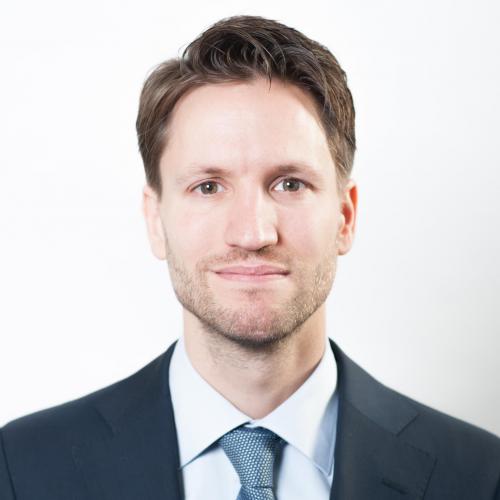
Gerben Hartman
LawyerCJEUGerben Hartman is a lawyer in the Research and Documentation directorate of the Court of Justice of the European Union (CJEU) since 2021, where he carries out preliminary analyses of references for a preliminary ruling and other case-related research. His work mainly focuses on all areas of Intellectual Property law. Previously (2010-2016), he worked as a lawyer at a top-tier law firm in the Netherlands. He completed his law studies at the university of Nijmegen (2009) and Stanford Law School (2017), followed by a four-year EU Marie Skłodowska-Curie fellowship at Queen Mary University of London, with secondments in the Legal Service of the European Union Intellectual Property Office (EUIPO) and in the cabinet of Judge Niilo Jääskinen at the CJEU.

Tim Harris
PartnerOsborne ClarkTime:17:40pm - 18:40pmAgenda Track No.:Track 3Session Type:General Session (Presentation)Force Inline Description:018:30pmChair Closing Comments -
Day One | Main Event (20th): Tuesday, 20 Jan, 20268:00am - 9:00amRegistration9:00am - 9:10amChairs’ Opening Remarks: Introduction to Patent Litigation EuropeMorning Session
Mediate, Arbitrate, License, Oppose or Litigate? Decisions for the Tech Sector
Navigating intellectual property disputes requires strategic decisions on the most effective resolution paths. This session explores the full range of options available to tech companies—from mediation and arbitration to licensing, opposition, and litigation. Gain insight into when each tool is best suited, how to manage IP portfolios proactively, support innovation teams, and balance the operational and financial impact of disputes on your business.
• Explore the expanding role of mediation and arbitration as faster, cost-effective alternatives to traditional litigation in various IP disputes.
• Understand the potential impact of the new UPC Mediation and Arbitration Centre in Ljubljana, and how it may change dispute resolution for European patent holders and implementers.
• Understand how strategic licensing and portfolio management can help avoid costly conflicts and support innovation.
• Discuss when to escalate matters through opposition proceedings or litigation and how to prepare for large-scale enforcement campaigns globally.
Speaker(s):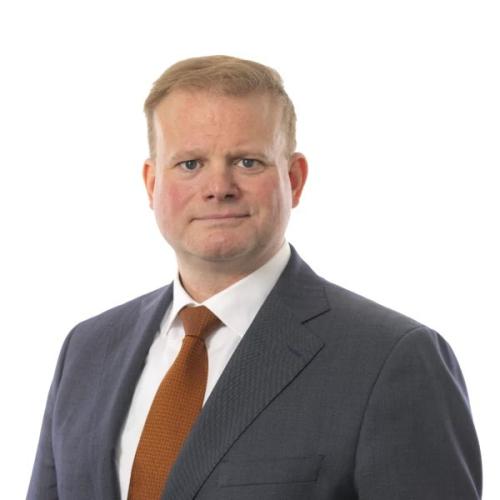
Bas Van Buul
Director of IPInalfa Roof Systems
Jako Eleveld
Head of IP LicensingPhilips
Linnea Harnesk
Head of IP LegalAutoliv
Volkmar Henke
PartnerBardehle PagenbergTime:9:10am - 10:00amAgenda Track No.:Track 2Session Type:General Session (Presentation)Force Inline Description:0Morning SessionThe Role of Competition Authorities within the Litigation and Licensing Landscape
Competition authorities are playing an increasingly influential role in shaping SEP and FRAND disputes worldwide. This session examines how regulators—from the European Commission to antitrust bodies in Brazil, India, and the US— are impacting injunction enforcement, licensing conduct, and broader litigation strategies. Panellists will discuss the political and consumer protection pressures driving authority interventions and how these forces interact with ongoing court cases and regulatory reforms.
• Analyse how competition authorities in Europe, Brazil, India, and the US influence injunction policies and SEP licensing practices.
• Discuss key investigations and decisions, including the European Commission’s amicus briefs and Brazilian antitrust probes into preliminary injunctions.
• Understand the evolving intersection of antitrust enforcement with SEP litigation and how it affects parties’ negotiation and enforcement strategies.
Speaker(s):
Carl-Alexander Dinges
PartnerBonabry
Ief Daems
Associate General CounselCisco
Adrian Howes
Head of IP and Standards- IP PolicyNokia
Alessandro Orsi
Vice President- LegalHPTime:10:00am - 10:45amAgenda Track No.:Track 2Session Type:General Session (Presentation)Force Inline Description:010:45am - 11:25amNetworking BreakMorning SessionAI and the Impact Upon Global Patent Litigation Strategies
Is there a technology emerging more conspicuously than AI? Probably not. This session explores how AI is impacting patenting and patent litigation considerations worldwide. Understand the evolving challenges these technologies present, how patent enforcement strategies are adapting, and the legal frameworks, including the EU AI Act and DSM Directive, influencing IP management today.
- Discuss the intersection of AI development, patent creation, and prosecution, including implications of the EU AI Act and DSM Directive on IP strategy
- Understand why patent litigation remains the IP function’s primary focus amid AI’s rise, and the evolving landscape of trade secrets, copyright, and trademarks
- Discuss the impact of AI upon drug discovery and the inventorship considerations that companies must understand to make sure their products are litigation-proof
Speaker(s):
Peter Finnie
PartnerPotter Clarkson
Gael Tisack
Chief IP CounselAbbott
Katie Coltart
PartnerLinklaters
Vincent Couteau
Head of IP TransactionsAtosTime:11:25am - 12:10pmAgenda Track No.:Track 2Session Type:General Session (Presentation)Force Inline Description:0Afternoon SessionThe Power of the Injunction: Discuss Central Cases and Jurisdictions within the SEP & FRAND Litigation Landscape
With injunctions becoming a decisive battleground in global SEP and FRAND disputes before the German courts and UPC, this session explores how courts across key jurisdictions are shaping access to—and constraints on—injunctive relief. From the Vodafone/HMD matter in Germany to expanding dockets in Brazil, India, and China, this session unpacks strategic use of injunctions by both SEP holders and implementers, while spotlighting where legal frameworks may shift next. Explore how national courts and the UPC are interpreting proportionality, the influence of the European Commission, and the contrasting positions across global IP enforcement venues.
- Compare how courts in Germany, the UK, the UPC, and the US weigh proportionality, public interest, and enforcement policy when determining injunction relief in SEP cases
- Explore how jurisdictions like Brazil and Colombia are shaping global negotiations through low-cost, fast-granting preliminary injunctions and limited review of FRAND defences
- Discuss the possibilities of injunctive relief in the USA and a change from the eBay standard
Speaker(s):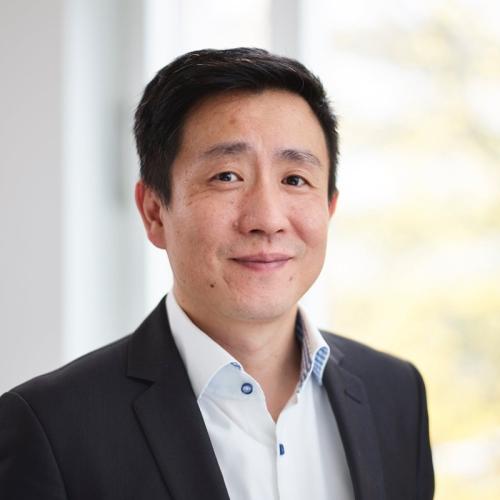
Le Chen
Senior Director- IP Policy & Dispute ResolutionXiaomi Technology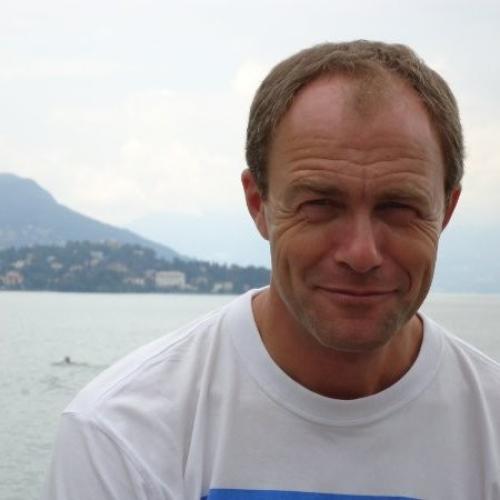
Koenraad Wuyds
Chief IP OfficerKPN
Tatiana Alvez
PartnerRNA Law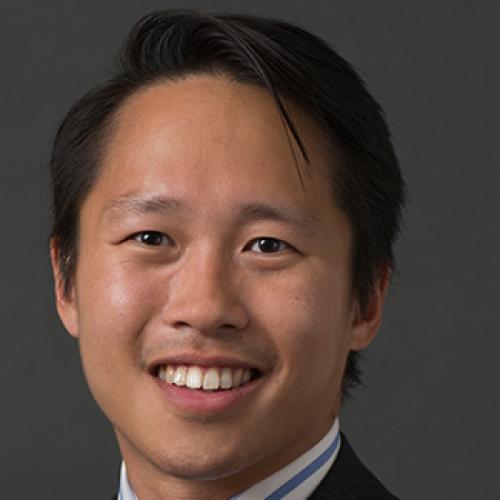
Daniel Lim
PartnerKirkland & EllisTime:12:15pm- 13:10pmAgenda Track No.:Track 2Session Type:General Session (Presentation)Force Inline Description:013:10pm-14:10pmNetworking LunchAfternoon SessionNational Courts vs the UPC: Venue Selection and Decision Making for the Tech & Innovation Industries
As the UPC establishes its position in the European IP landscape, the tension between national courts and the UPC is growing more pronounced. From Germany’s increasingly patentee-friendly stance to the emerging strategic importance of UPC first-instance decisions, this session unpacks the evolving dynamics shaping venue selection. With leading jurisdictions competing for relevance and consistency, legal teams must carefully weigh litigation strategies, timelines, and judge behaviour across venues. This session explores what’s driving decision-making in general technology patent litigation cases, FRAND and SEP disputes, and how industry stakeholders are navigating a fragmented, fast-moving litigation environment.
• Compare litigation strategy and outcomes between the UPC and key national courts, including Germany and the UK.
• Assess how judicial behaviour, timing, and appeal prospects are influencing venue selection in high-stakes tech disputes.
• Understand the impact of important case law at the UPC, including Panasonic vs Oppo (2024) and determine your strategy accordingly.
Speaker(s):
Florian Schmidt-Bogatzky
PartnerHSF Kramer
Clemens Heusch
Head of Global Disputes and ResolutionNokia
Alexander Haertel
Cluster Lead PatentsDeutsche Telekom
Vanesssa Von Hadeln
IP ManagerSES SatellitesTime:14:10pm - 15:00pmAgenda Track No.:Track 2Session Type:General Session (Presentation)Force Inline Description:0Afternoon SessionUK Interim Licences and the Future of SEP Litigation
The UK Court of Appeal has recently endorsed interim FRAND licences in cases such as Panasonic v. Xiaomi, Nokia v. Amazon, and Lenovo v. Ericsson. These rulings aim to maintain commercial balance during litigation by ensuring implementers pay royalties while limiting coercive injunction strategies. This session considers how such measures could influence UPC practice and reshape multi-jurisdictional SEP disputes.
- Analyse the UK Court of Appeal’s approach to interim licences and their role in SEP/FRAND enforcement strategy
- Discuss the potential impact of UK practice on UPC jurisprudence and multi-jurisdictional coordination
- Compare the UK’s approach with practices in Germany, the US, and China, where interim licences remain largely untested
- Consider whether interim licences may reduce forum shopping, limit abusive injunction tactics, and promote earlier global settlements
- Discuss the effect of interim licences on the global SEP and FRAND landscape
Speaker(s):
Peter Pereira
PartnerKirkland & Ellis
Scott Hayden
Chief IP OfficerAmazon
Clemens Heusch
Head of Global Disputes and ResolutionNokia
Alexander Prenter
Senior Policy OfficerFair Standards AllianceTime:15:00pm-16:00pmAgenda Track No.:Track 2Session Type:General Session (Presentation)Force Inline Description:016:00pm-17:00pmNetworking Break17:00pm-18:30pmConnect 26!Europe (2) - The Interaction Between the EPO, UPC and National Courts for a Comprehensive Patent Strategy
Speaker(s):
Claudia Milbradt
PartnerClifford Chance
Josep Montefusco
PartnerClifford ChanceAgenda Track No.:Track 3Europe- Fair Standards Alliance Roundtable: FRAND, Innovation and Enforcement in Europe
Speaker(s):
Alexander Prenter
Senior Policy OfficerFair Standards Alliance
Brimanti Sari-de Bruin
Head of Legal & ComplianceFairphone
Rebekka Porath
Intellectual Property FellowInnovators NetworkAgenda Track No.:Track 2Session Type:General Session (Presentation)Force Inline Description:0Europe- Common Mistakes Before the UPC (and Why They May Have Felt Right at First)
Speaker(s):
Andrej Michalik
PartnerAltius De Clercq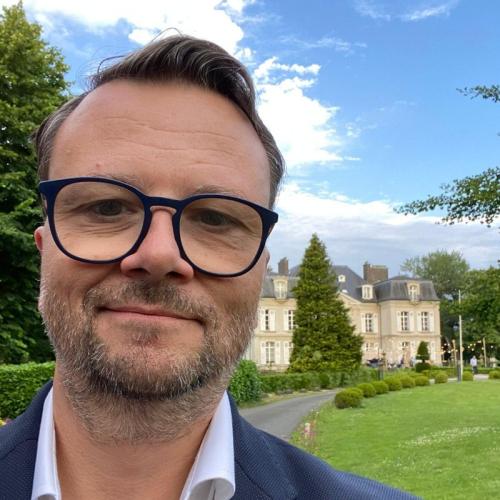
Koen Vanhalst
PartnerAltius De Clercq
Kirian Claeyé
PartnerAltius De ClercqAgenda Track No.:Track 3Session Type:General Session (Presentation)Force Inline Description:0UK (Roundtable 2) - Interim License Strategies in SEP Litigation: Navigating FRAND, Injunction Risks, and Cross-Jurisdictional Impact
Agenda Track No.:Track 2Session Type:General Session (Presentation)Lessons from Mediation in Patent Disputes at the UPC and in France.
Speaker(s):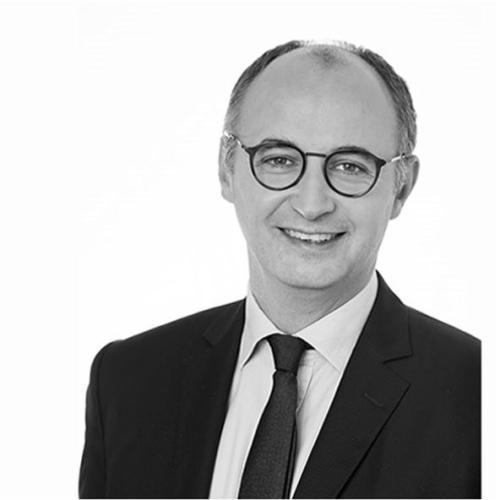
Camille Pecnard
PartnerLavoix
Aude Veinante
European Patent AttorneyLavoixAude assists her clients in defining their patent strategy. Aude drafts new patent applications and monitors grant procedures in France and abroad. Her work also includes conducting patentability, validity and freedom to operate studies as well as forming consultations relative to supplementary protection certificates (SPCs).
Aude performs audits in the pharmaceutical and life science fields and advises her clients in case of patent disputes.
Aude is a member of the AIPPI (International Association for the Protection of Intellectual Property) and the GRAPI (Groupe Rhône-Alpes pour la protection de la Propriété Intellectuelle [Rhône-Alpes Group for the Protection of Intellectual Property]). She is also a lecturer at the Bordeaux National School of Biomolecule Technology.

Pierre-Emmanuel Meynard
PartnerLavoixAgenda Track No.:Track 2Session Type:General Session (Presentation)Germany - The Power of German National Courts in Light of the UPC
Agenda Track No.:Track 3Session Type:General Session (Presentation)China - Turning Litigation into Leverage in SEP Disputes
Agenda Track No.:Track 2Session Type:General Session (Presentation)India - Interim Relief and Damages within Indian Patent Litigation
Speaker(s):
Dr. Sanjay Kumar
Managing PartnerPerfexio Legal
Arpita Sawhney
PartnerPerfexio LegalAgenda Track No.:Track 3Session Type:General Session (Presentation)Force Inline Description:0Turkey- Enforcement Strategies for Turkish Jurisdiction
Speaker(s):
Okan Can
Senior PartnerDerisAgenda Track No.:Track 3Session Type:General Session (Presentation)Force Inline Description:0USA - Navigating AI in U.S. IP Litigation
Speaker(s):
Lauren Baker
AssociateBarnes & Thornburg
John Cox
PartnerBarnes & ThornburgWith deep knowledge of issues facing the life sciences industry, John Cox counsels clients regarding their worldwide intellectual property rights and represents their patent interests when litigation arises, particularly regarding pharmaceutical, chemical, and biotechnology matters. John takes his role in protecting these important assets of life science innovators very seriously while approaching each matter with enthusiasm.
Through his ability to communicate effectively and succinctly, John advises on, develops, and carries out global IP strategies for the benefit of innovative companies, his clients, who are focused on developing core assets that save and improve the lives of patients. John enjoys leveraging his unique ability to put together targeted and enduring teams for each matter – paying close attention to each person’s strengths and skillsets and how they fit with one another, alongside his highly specialized experience and thoughtful and responsive nature.
John is intimately familiar with the pharmaceutical industry, having dealt with patent and IP subject matter ranging from brain chemistry, the gastrointestinal system, drug delivery systems and treatments of rare diseases and cancer to medical diagnostic methods, the generation of biofuel using bacteria, and processes for manufacturing chemicals and pharmaceutical products. He also has almost two decades of experience in Abbreviated New Drug Application (ANDA) cases, including pre-litigation investigations.John offers guidance from the first step of a matter through to resolution, including all aspects of litigation. He has extensive experience related to discovery and motion practice, as well as in developing offensive and defensive strategies. He is well versed in dealing with complex subject matter and technical witnesses, such as inventors and experts.
John adeptly helps clients navigate the crossroads of foreign business practices and the complexities of U.S. patent practice, having worked with foreign pharmaceutical, chemical, and biotechnology companies throughout his career.Agenda Track No.:Track 3Session Type:General Session (Presentation)UPC - The Long Arm Reach of the UPC
The Long Arm Reach of the UPC
Agenda Track No.:Track 3Session Type:General Session (Presentation)UK: The Role of the UK Court in a UPC Context
Speaker(s):
Nick McDonald
PartnerMarks & ClarkAgenda Track No.:Track 3Session Type:General Session (Presentation)Force Inline Description:0Global - The Power of the Preliminary Injunction in Global SEP Negotiations
The Power of the Preliminary Injunction in Global SEP Negotiations
Agenda Track No.:Track 2Session Type:General Session (Presentation)18:30pmChair Ends Day 118:35pmNetworking Drinks Reception -
Day Two | Main Event (21st): Wednesday, 21 Jan, 20267:30amRegistrationBreakfast Session
Global Patent Injunctions: Litigation Strategies Across Jurisdictions
This breakfast session reviews how courts worldwide are approaching patent injunctions post-UPC launch. Hear perspectives on jurisdictional divergences, evolving standards for proportionality, and the practical risks for cross-border enforcement. Gain clear takeaways on how to manage litigation strategy where remedies remain uncertain and fragmented.
Speaker(s):
Jules Fabre
PartnerTaylor Wessing
Amanda Ebbutt
PartnerTaylor Wessing
Gisbert Hohagen
PartnerTaylor WessingTime:8:00am - 8:45amAgenda Track No.:Track 3Session Type:General Session (Presentation)Force Inline Description:0Morning SessionKeynote Interview from Lord Justice Birss on Certainty and Change in Patent Law
Lord Justice Birss will open the Summit with a keynote session addressing the tension between legal certainty and rapid change in patent law. Drawing on recent patent litigation cases, he will outline how courts are approaching complex exclusivity disputes and what this means for counsel navigating the current IP climate.
Speaker(s):
Colin Birss
ChancellorHigh Court of England and WalesSir Colin Birss was sworn in as Chancellor of the High Court in November 2025. He was called to the English Bar in 1990 and practiced in intellectual property law, taking silk in 2008. In 2010 Colin Birss went on the bench, first as judge of the Patents County Court (now IPEC) and then, in 2013, to the High Court. In 2019 became Judge in Charge of the Patents Court. Colin was sworn in as a Lord Justice of the Court of Appeal in 2021 and took up a senior leadership role as the Deputy Head of Civil Justice until November 2025.

Jason Raeburn
PartnerPaul HastingsTime:8:50am-9:10amAgenda Track No.:Track 3Session Type:General Session (Presentation)Force Inline Description:09:05am - 9:10amChair’s Recap of Day 1 and Introduction to Day 2Morning SessionUnderstanding Different Perspectives Surrounding Patent Quality and Its Impact Upon the Patent Ecosphere
Patent quality remains a critical concern for technology and innovation-driven industries such as Life Sciences, IoT, automotive, telecommunications, and medical devices. This session will examine how differing definitions and expectations of quality are shaping global enforcement strategies and IP value. Panellists will explore the role of major patent offices and courts – including the EPO, UPC and PTAB – and discuss how perceptions of patent strength affect licensing leverage, competitive positioning and dispute outcomes across jurisdictions. Expect a comparative and commercially grounded discussion on how businesses are adapting their portfolios and legal strategies in response.
• Compare approaches to patent quality and examination at the EPO, USPTO and other key offices.
• Discuss the relationship between patent quality and litigation outcomes in major venues including the UPC and PTAB.
• Explore how companies are shaping their portfolios to maximise commercial and legal advantage.
Speaker(s):
Farnaz Massoumian
Senior Patent AttorneyVodafone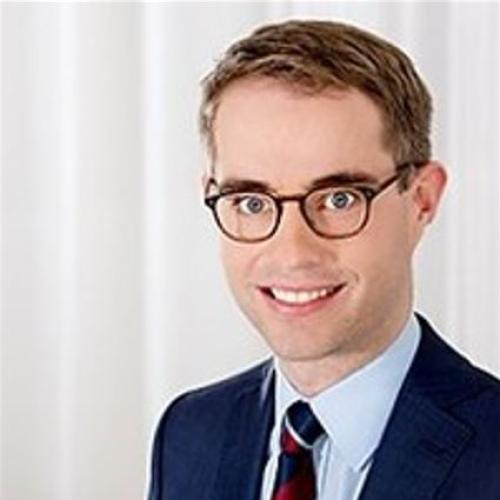
Wolfram Thomas
Senior Director- Patent CounselQualcomm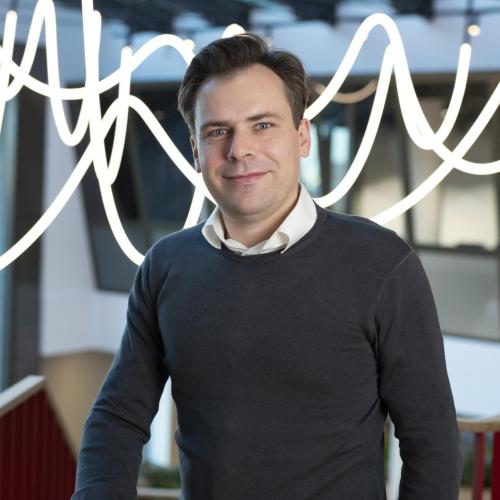
Georg Müller
Head of IPTom TomDr. Georg Müller is Swiss and European Patent Attorney and leads TomTom’s IP team as Head of IP. Prior to this, he oversaw Strategic IP Counsel the IP activities of the Grid Automation Business Unit of Hitachi Energy. Dr. Müller started his professional career in Research and Development at ABB Corporate Research. He holds a doctoral degree in physics after studies of physics in Göttingen, Hannover, and Santa Barbara.
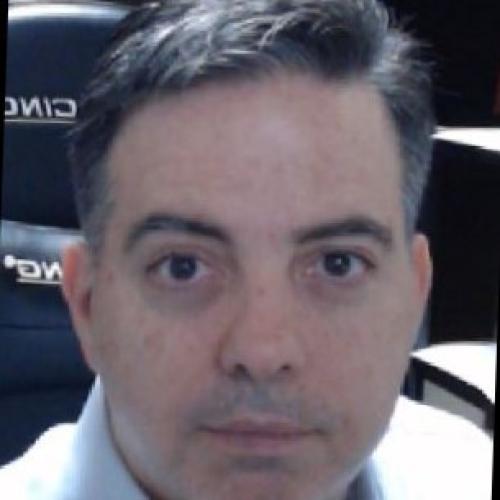
Louis Ross
CEOMEI Micro
Peter Finnie
PartnerPotter ClarksonTime:9:15am - 10:10amAgenda Track No.:Track 2Session Type:General Session (Presentation)Force Inline Description:0Morning SessionMulti-Jurisdiction Patent Litigation and the Rise of the Strategic Forum
As cross-border patent disputes expand, companies now face parallel proceedings in the UK, the UPC, the US, and Asia. From Unwired Planet v. Huawei to Panasonic v. OPPO, courts are asserting global influence over licensing, validity, and enforcement. This session explores how strategic forum selection and procedural divergence are reshaping litigation outcomes and global IP strategy.
• Compare how the UK, UPC, US, and German courts approach jurisdiction, declaratory relief, and parallel enforcement.
• Examine how anti-suit injunctions, interim measures, and case sequencing are used to influence settlement leverage.
• Review recent cross-border disputes, including Edwards Lifesciences v. Meril Life Sciences and Apple v. Masimo, to identify emerging litigation patterns across sectors.Speaker(s):
Tom Brown
Senior Managing Legal Director, Head of Intellectual Property LitigationDell
Taylor Ludlam
Vice President- IP & LitigationLenovo
Boukje Van der Maazen
LawyerBrinkhof
Le Chen
Senior Director- IP Policy & Dispute ResolutionXiaomi Technology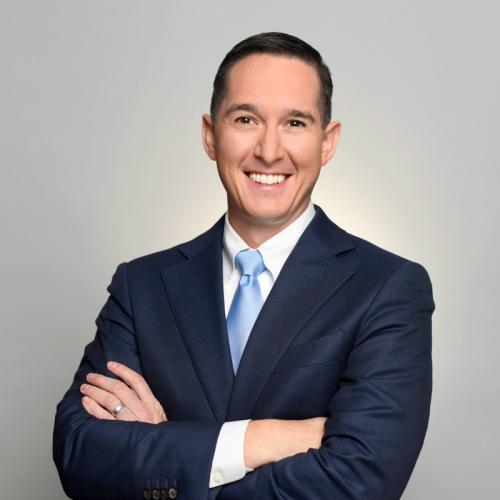
Adam Shartzer
PrincipalFish & RichardsonTime:10:10am - 11:10amAgenda Track No.:Track 2Session Type:General Session (Presentation)Force Inline Description:011:10am-11:50amNetworking BreakInteractive Workshop: Advancing Inclusion in the European Patent Landscape with ChIPs
Speaker(s):
Emily Bottle
PartnerHSF Kramer
Margot Kokke
Honourable JudgeUPC Court of First Instance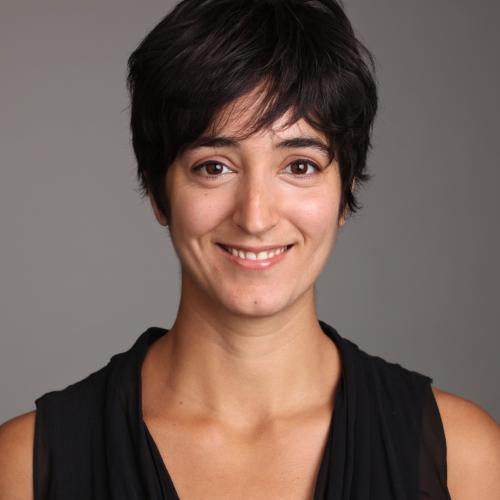
Laila Beynon
Director – Dispute ResolutionRegeneronLaila Beynon is Director, Dispute Resolution at Regeneron, responsible for the strategic co-ordination of ex-US patent litigation. She has a PhD in Biochemistry/Molecular Biology, 10 years’ private practice experience in life sciences patent litigation at Herbert Smith Freehills LLP, and prior to her role at Regeneron headed up the Patent Litigation team at BAT.

Anna Giedke
PartnerBardehle Pagenberg
Kai Harmänd
Honourable JudgeUPC Court of First InstanceTime:11:20am-11:50amSession Type:General Session (Presentation)Force Inline Description:0Morning SessionJudges Forum: FRAND Royalty Rate Determination and Beyond
Judges from leading patent jurisdictions come together to share their perspectives on FRAND royalty rate determination and core technology related patent litigation questions. This forum offers a rare opportunity to hear directly from those shaping the legal landscape around standard-essential patents, licensing disputes, and evolving enforcement trends. The panel will explore practical challenges, judicial approaches, and insights into how courts are balancing innovation incentives with fair competition.
Speaker(s):
Edger Brinkman
Honourable Judge, Local Division HagueUPC
Gary Moss
ChairmanEIP
Colin Birss
ChancellorHigh Court of England and WalesSir Colin Birss was sworn in as Chancellor of the High Court in November 2025. He was called to the English Bar in 1990 and practiced in intellectual property law, taking silk in 2008. In 2010 Colin Birss went on the bench, first as judge of the Patents County Court (now IPEC) and then, in 2013, to the High Court. In 2019 became Judge in Charge of the Patents Court. Colin was sworn in as a Lord Justice of the Court of Appeal in 2021 and took up a senior leadership role as the Deputy Head of Civil Justice until November 2025.

Margot Kokke
Honourable JudgeUPC Court of First InstanceTime:11:50am-12:40pmAgenda Track No.:Track 2Session Type:General Session (Presentation)Force Inline Description:012:40pm-13:40pmNetworking LunchAfternoon SessionNPEs, Aggregators and SEP Regulation: Who Really Shapes Global Patent Litigation and Licensing?
As Europe’s proposed SEP regulation stalls and global enforcement accelerates, the balance of power between regulators, NPEs, and aggregators is shifting fast. This session examines how new licensing structures, transparency demands, and collective negotiation groups are reshaping global SEP and FRAND dynamics. Panellists will assess how regulatory uncertainty, patent pools, and private licensing vehicles are redefining control over rates, litigation, and access to standards-based technology.
• Explore how NPEs, defensive aggregators, and LNGs influence litigation risks, royalty setting, and enforcement behaviour across jurisdictions.
• Understand how patent pools like Via Licensing Alliance, Sisvel and Avanci are adapting to regulatory scrutiny and calls for transparency in essentiality checks.
• Assess how emerging regulation, antitrust enforcement, and collective negotiation models are redefining licensing leverage for both implementers and SEP holders.Speaker(s):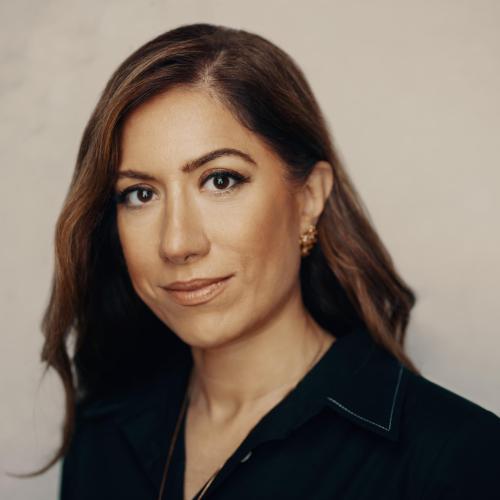
Bita Mortazavi
VP of Patent AnalysisRPX Corporation
Adrian Howes
Head of IP and Standards- IP PolicyNokia
Tom Brown
Senior Managing Legal Director, Head of Intellectual Property LitigationDell
Helene Jay
VP Media ProgramsVia Licencing Alliance
Carl-Alexander Dinges
PartnerBonabryTime:13:40pm-14:30pmAgenda Track No.:Track 2Session Type:General Session (Presentation)Force Inline Description:0Afternoon SessionThe Converging Fronts of Trade Secret and Patents
As European courts see increased trade secret enforcement activity, particularly in industries like semiconductors, AI, , biotechnology and automotive, the strategic interplay between patent and trade secret protection is evolving. This session will explore the practical and legal considerations that drive trade secret litigation, and how these disputes intersect with patent strategies, particularly in cross-border contexts. Panellists will discuss how European companies are learning from U.S. trade secret practice and how this is shaping enforcement choices, litigation posture, and IP portfolio structuring.
• Examine key differences in procedural tools and evidentiary requirements for trade secret litigation across Europe and the U.S.
• Explore how businesses decide between trade secret protection and patenting in fast-moving sectors like AI, mobility, biotech and software.
• Discuss coordination of parallel patent and trade secret disputes, including cross-border enforcement challenges and forum selection strategies.
Speaker(s):
David Goodfellow
Chief IP CounselAptiv
Adele Calamo Specchia
Head of Ownership & LicensingASML
Joachim Herrn
Chief Legal Officer and General CounselNorwegian Green Solutions AS
Mitsuaki Masumura
Head of Licensing AP & EMEAIBM
Marc Lauzeral
PartnerSchertenleib AvocatsTime:14:30pm- 15:20pmAgenda Track No.:Track 2Session Type:General Session (Presentation)Force Inline Description:015:20pmChair Closing Comments15:25pmConference Ends
Jump to: Monday, 19 Jan | Tuesday, 20 Jan | Wednesday, 21 Jan